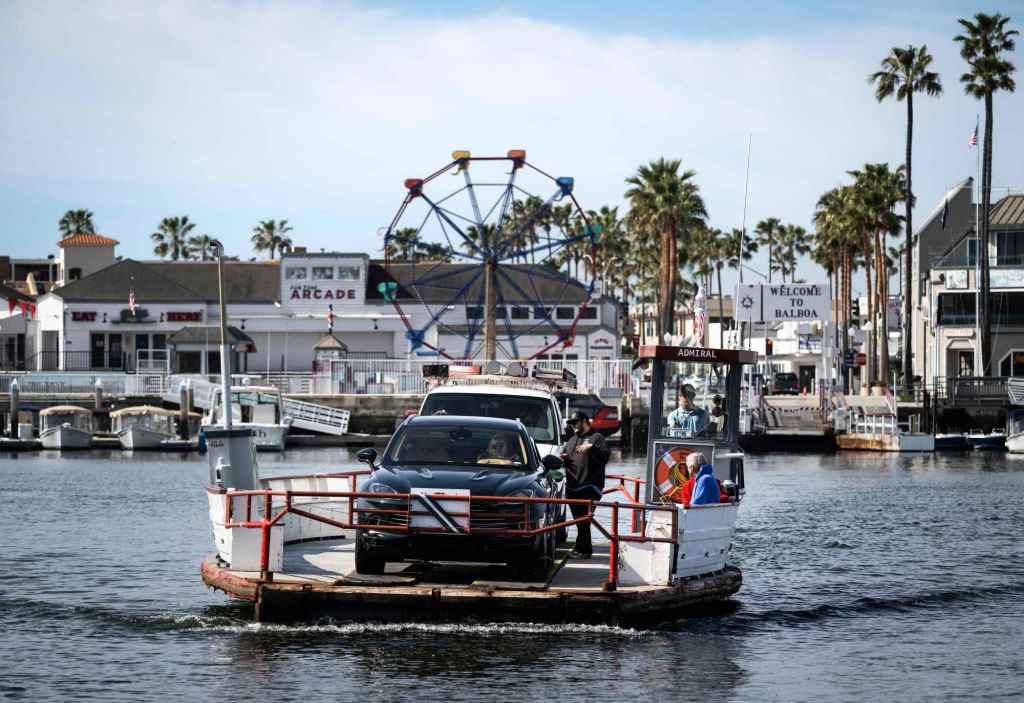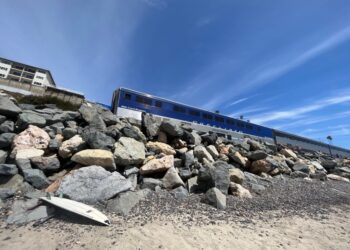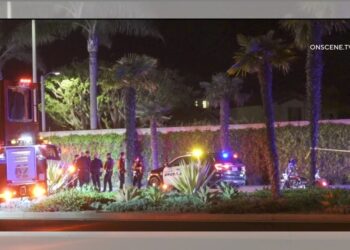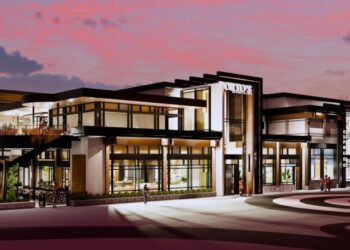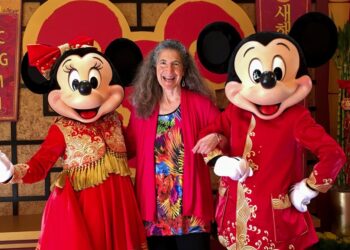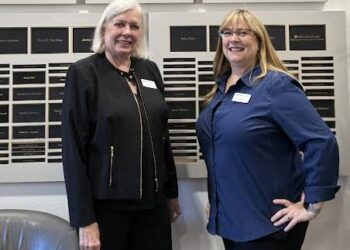The operator of the popular Balboa Island Ferry has received a $7.9 million grant from the California Air Resources Board, or CARB, to help with the conversion of its vessels from diesel to electric engines to help meet zero-emissions standards.
“It’s not all the money we need, but it’s a big chunk,” said Seymour Beek, whose family has run the ferry for more than a century. He worked through the South Coast Air Quality Management District to get the CARB grant.
Since 2022, when CARB rolled out new regulations for ferries, tugs, sportfishing vessels and whale-watch charters requiring a reduction in harmful emissions, Beek has been trying to get grant funding and time extensions to help with converting the engines that power his three ferries.
The daily ferry service transports cars, bicycles and pedestrians 900 feet across the busy Newport Harbor from Agate Avenue on Balboa Island to Palm Avenue on the Balboa Peninsula; it is also popular with visitors. The ferries run from 6:30 a.m. until midnight.
The CARB regulation focuses on reducing emissions by replacing or modifying older diesel engines. It follows the requirement that all in-state sales of cars and trucks be reduced to zero emissions by 2035. CARB, charged with protecting public health by cleaning up the air in California, first adopted regulations for commercial harbor crafts in 2007, amended them in 2010, and then again in 2022.
Beek said he and his family applied for the grant months ago and have also been given a time extension until the end of 2026 on converting two of the three ferries. He’s seeking an extension for the third ferry, which is expected to be converted by the end of 2025, though he said even 2026 will be hard to meet.
In the time since the requirements were mandated, Beek said he has researched and worked with engineering firms to look at how the conversion to electric engines could be accomplished. Most all of the solutions are cost-prohibitive Beek said, adding he’s…
Read the full article here

